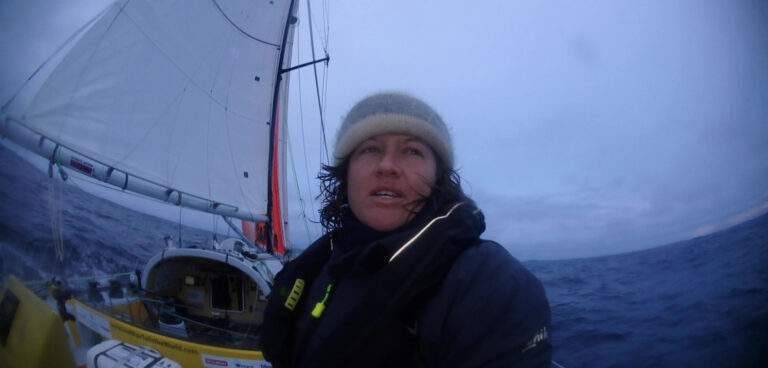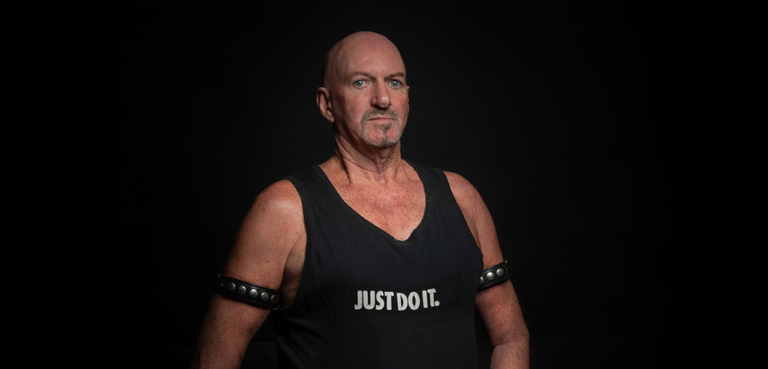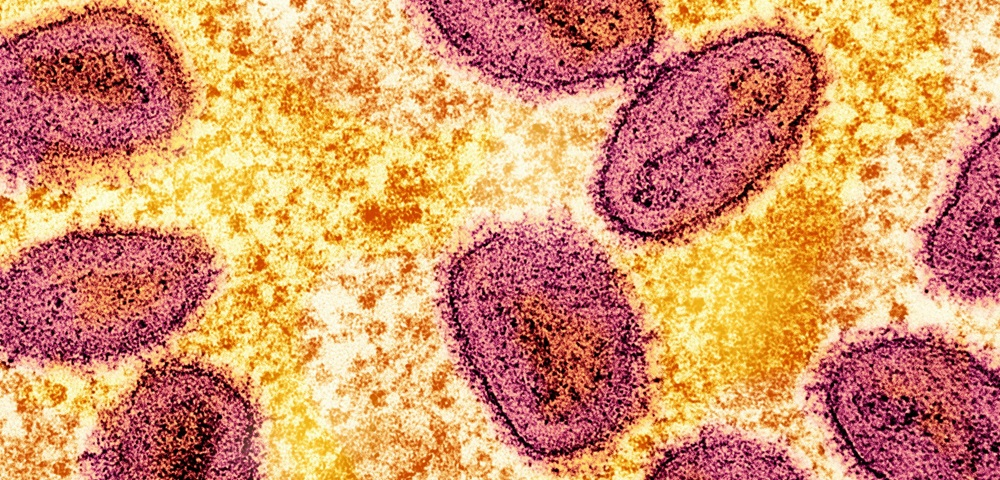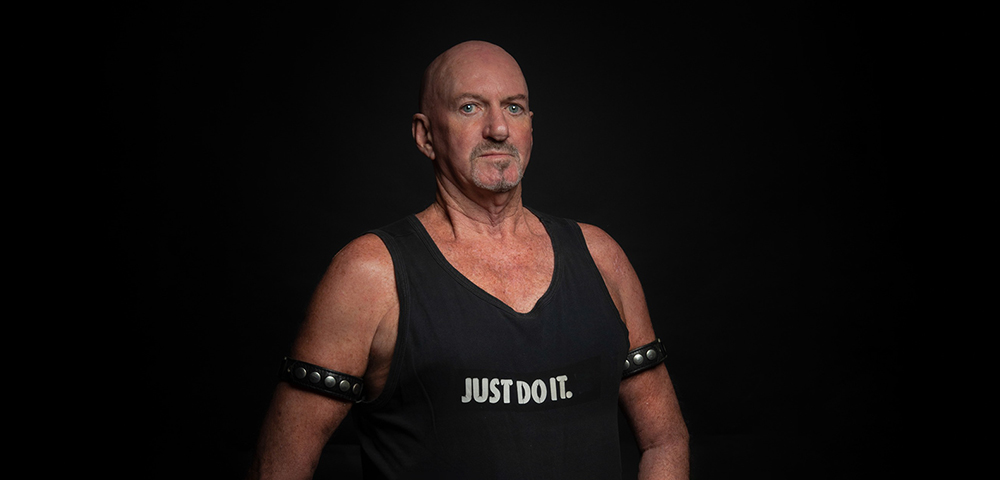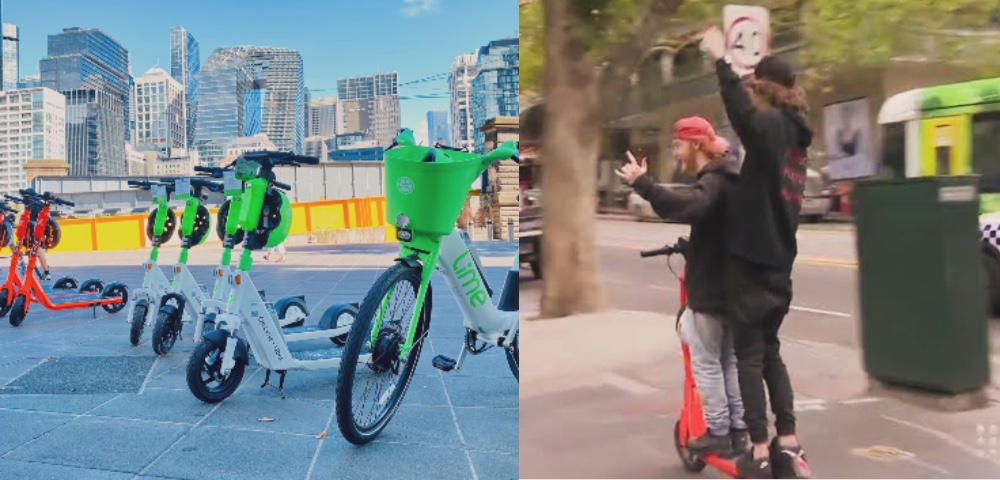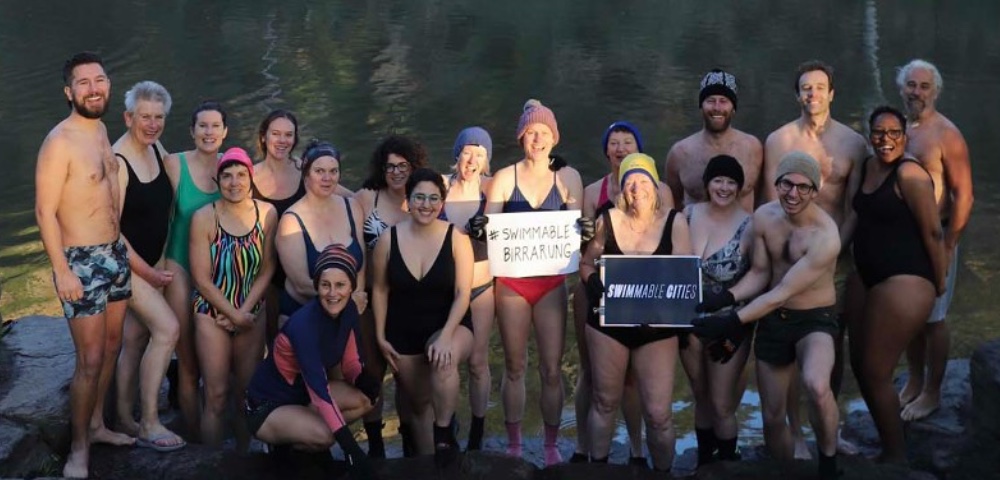
Newtown Woman of the Year fights to protect community homes
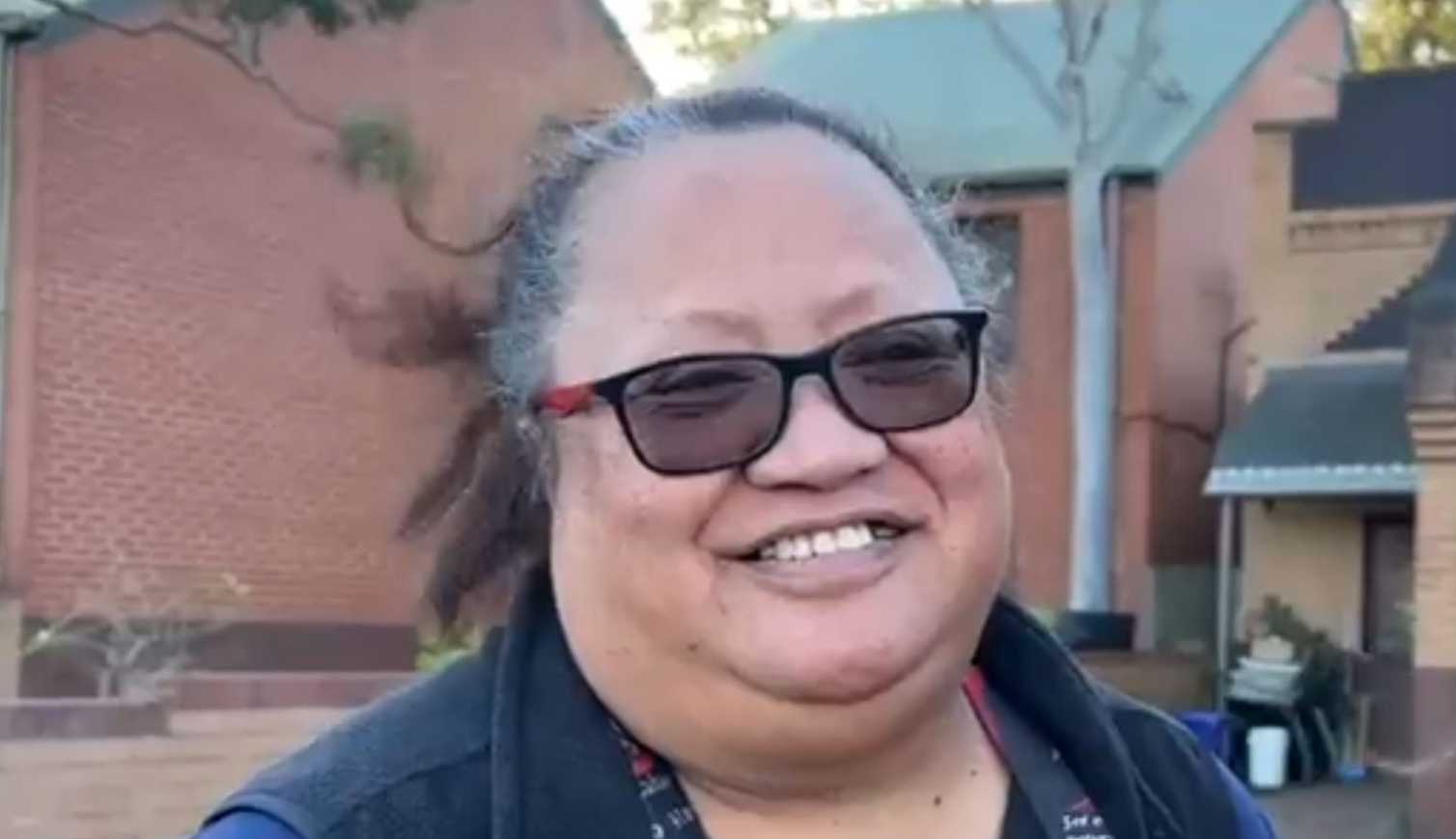
by WENDY BACON
For four years, Newtown Woman of the Year for 2024 Sarina Afa and her community have been fighting the destruction of their publicly owned Explorer Street homes in Inner Sydney.
In presenting Afa with her Woman of the Year award at a reception in Parliament House in March, Newtown MP and Greens Housing Spokesperson Jenny Leong recognised Afa’s long record as a campaigner for public housing and racial justice. In recent years, “Sarina is doing the job of the government – working and connecting with her neighbours to consult and connect them with the process despite the trauma of being told that you will have to move out of your home and they plan to demolish it,” she said.
Afa, a Polynesian Australian, has been living with her family in her Explorer Street home for more than 30 years. She is strong supporter of action to protect and expand public housing. “As individuals and tenants on Explorer Street we are totally against the government’s idea of getting rid of 100% public land for public housing. They [the NSW government] need to do better. They need to stand up and build more public housing,” she said in her acceptance speech.
By way of disclosure, City Hub’s reporter has lived near Explorer Street since it was built in 1991. When I first heard that there was a plan to demolish it, I did not believe it and thought there was a misunderstanding. I’ve always regarded the publicly owned low-rise housing estate as an attractive community, conveniently located near transport and schools in a mixed and increasingly gentrified community. Surely at a time a housing crisis, a government would not knock down such a sound housing estate?
But it turned out to be true. As Afa told the reception, in 2020, she unexpectedly received a “couple of flyers with some pretty pictures” informing her that the then LNP “government to was going to take our 46 homes and demolish them. It was a shock to everyone in our neighbourhood. We’re talking 46 homes. Instead there would be high rise towers. We’re talking about three or four people per home. So 150 people’s lives are disrupted. We didn’t have a say in it.”
The LNP plan was for 425 apartments, of which 30 per cent, or around 130 dwellings, would be social (not public) housing, managed by a non government provider. The social housing would nearly all be one or two bedrooms, compared to the existing town houses, some of which are suitable for larger families.
The Explorer Street residents were told not to expect anything to happen until the end of 2022, leaving the community to deal with a sense of insecurity, made worse by a declining standard of maintenance.
The residents were supported by local resident groups Friends of Erskineville and Redwatch and their local Greens MP Jenny Leong.
The City of Sydney had the power to approve or disallow the rezoning and expressed strong dissatisfaction with the proposal. But in December 2022, the LNP government moved the rezoning approval process to the NSW Planning department. The government had also taken away the powers of the City of Sydney Council in relation to the larger nearby Waterloo estate where thousands of private apartments were planned on what is public land.
With a state election due in March 2023, attention turned to the Labor party – would its policy be different?
Labor promises no privatisation
NSW Labor’s key campaign message was that they would end the sale of public assets. It stated explicitly that there would be no more privatisation of public housing. Chris Minns and Rose Jackson, now Premier and Housing Minister respectively, explicitly said that if elected, Labor would immediately freeze the sale of all public and social housing. Labor Councillor Linda Scott, who campaigned with local Labor candidates in the Greens electorates of Balmain and Newtown, stated that not only would no homes be sold but that no one would be relocated. NSW State Labor Conference passed a motion that it would increase public housing more rapidly than private housing in Inner Sydney. In last-minute letter box drops in the final days of the campaign, Inner Sydney public tenants were flooded with messages that only Labor could save their homes. Understandably, public tenants including those on Explorer Street believed that if NSW Labor won the election, their homes would be saved.
After the election, Afa and her neighbours waited anxiously for an announcement. Leong was reelected and is the Greens spokesperson for Housing. In May, she asked the Premier in parliament: Given the Premier’s … announcement of an immediate freeze on public housing sales, will he now give certainty and housing security to the public housing tenants in Waterloo South and Explorer Street in Eveleigh by scrapping the former Liberal-Nationals Government’s plans to privatise and redevelop their homes through State-led rezoning?
Minns diverted by attacking the LNP’s record of privatisation. He then announced that the NSW government “is committed to 30 per cent of homes that are built on government land being social and affordable housing” and that in Waterloo South, where there are 749 public homes, there would be a minimum of 34 per cent social and affordable housing and the government was exploring the options for more.” That was it. He didn’t answer the question about Explorer Street. But four months into a Labor government, it was now clear that under NSW Labor “no sale of public land” meant that 70 per cent of existing 100 per cent public housing estates could be transferred to private developers and owners.
Broken election promise
In July, Leong told parliament, “The Minns Labor Government was elected on a mandate to end privatisation in the State, but 70 per cent of public land will be sold off and privatised to fund 30 per cent of land for social and affordable housing. … The Greens cannot back in a position where public land is sold off to private interests, private investors and private developers when we are in the middle of a housing and cost-of-living crisis.”
The residents of Explorer Street were bitterly disappointed. Afa told the parliamentary reception, “It was such a shock to see and be promised by Labor, that they would stand with us and not get rid of public housing, Now as well as breaking promises and telling lies, they’ve follow exactly what Liberals said they were going to do and trying to rezone these homes. They’re still moving forward and they don’t believe it’s necessary to maintain housing.”
In July 2023, REDwatch hosted a community meeting where Department of Planning and Environment and Land and Housing Corporation representatives confirmed the plans to proceed with rezoning. Instead of cancelling LNP plans, Labor instead placed Explorer Street on its list of “priority growth areas”.
NSW Planning’s current proposal is to demolish the existing buildings and replace them with 400 new homes including approximately 120 new social homes (30 per cent) and 80 (20 per cent) new affordable home, of which 16 would be for First Nations people. This is slightly less social homes than the previous plan. The criteria for ‘affordable’ housing and how it would be allocated is not clear. The maximum height would be 13 stories.

Strong community opposition to Explorer Street proposal
The consultation process is already over but the government can be in no doubt that a huge majority of those interested oppose the government’s plan to go into partnership with private developers on this site.
Of 531 individuals who signed either a joint template or made an individual submission, more than 90 per cent objected to the proposal. Friends of Erskineville, Redwatch, Counterpoint Community Housing and City of Sydney and a joint Greens submission from Leong and City of Sydney Greens Councillor Sylvie Ellsmore supported Explorer Street remaining in public ownership. Some submissions noted that renewal did not prevent public ownership. REDwatch argued that there is alternative public owned land in Inner Sydney where 100 per cent public or social housing can be built while Explorer Street homes remain in place.
There was strong support in submissions for improved maintenance of Explorer Street homes that the government is allowing to decline or even leave empty. Requests by older tenants whose families have left home for transfers to smaller units in order to allow bigger families on the Housing waiting list to move in are also refused.
All community groups opposed the rezoning and the only organisations that did support the proposal were Community Housing Providers who have a stake in future contracts for housing.
Minns and the Minister for Housing Rose Jackson argue that including private homes on public land ensures a social mix. In fact, locals fear that the demographic trends in Inner Sydney threaten to dwarf communities of public tenants. According to the 2021 Census Data, Erskineville (close to Explorer Street in Eveleigh) has gone from one of the poorest to one of the most advantaged suburbs over 50 years. Unless there is a large injection of publicly owned homes, more planned private developments will further dilute public housing communities in increasingly wealthy neighbourhoods. High rents also favour the wealthy. If the Explorer Street development rezoning goes ahead, this public housing estate will disappear replaced by social housing managed by non-government providers. There would be more socially managed tenancies but not before 2028. Most of those would be designed only for single people. It is not clear if any would be suitable for larger families.
Leong and Councillor Sylvie Ellsmore wrote in their submission: “With more than 57,000 approved applicants on the public housing waiting list and social housing amounting to only 3.8% of all dwellings in Australia, there is no excuse for demolishing existing public housing. We note that in the CS03 allocation zone, in which the Explorer Street estate is located, there are presently 1,203 approved applicants on the general social housing waiting list and a further 351 on the priority waiting.” Relocations of existing tenants will mean units that might have become available for new tenants are occupied by relocated tenants.
The wishes of the community are clear and if consultation was to mean anything, the NSW government would be now seriously reconsidering the proposed public/private development. But NSW Planning are notorious for ignoring community feedback so it is hard to be optimistic.
According to the NSW Planning website, no decision has been made. Some residents sent copies of their submissions to the Minister for Housing Rose Jackson. City Hub has seen a Ministerial form letter response sent to Friends of Erksineville Treasurer Andrew Chuter. The letter reads as if NSW Planning’s approval of the proposal is a fait accompli. Jackson added a personal handwritten note, “I hope you understand my determination to deliver more affordable housing.”
But Afa and other housing campaigners don’t agree that desperately needed public housing should be sacrificed to a few more ill-defined ‘affordable’ homes. They are continuing their fight and hope to persuade the Labor government to stick to its anti-privatisation election promise. “Housing is a human right. Everybody is entitled to secure housing. And that’s something that we will work for.”
Wendy Bacon has participated in Action for Public Housing rallies and supported Greens electoral candidates.

